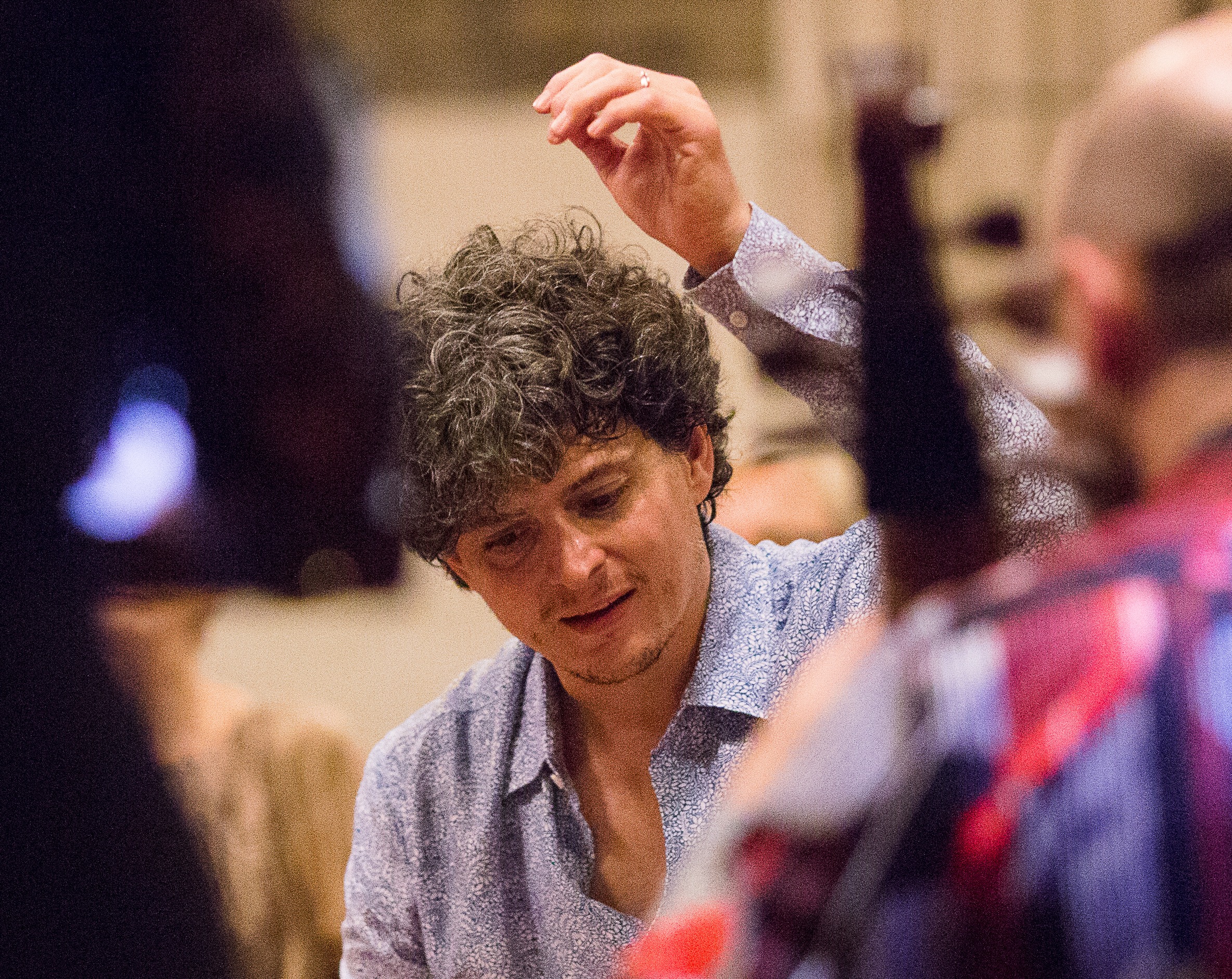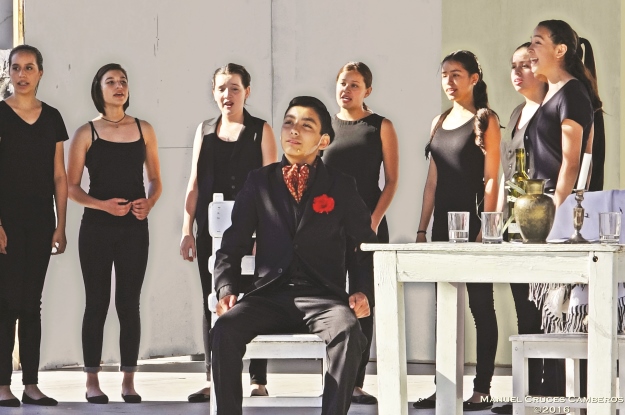This article is adapted from AQ’s special issue on the U.S.-Mexico relationship. To receive AQ at home, subscribe here.
Tijuana’s annual Ópera en la Calle (Opera in the Street) is as much a musical occasion as a symbol of the city’s evolving cultural identity — a retaking of public space too often claimed by violence and a sign that expectations always can be upended.
Run by the independent organization Ópera Tijuana, Ópera en la Calle came about when an anniversary celebration at the Café de la Opera (located four blocks from the border) drew an unexpectedly large crowd that flowed into the streets. After that surprising success, the owner of the cafe, together with a group of supporters led by Teresa Riqué (now Ópera Tijuana’s general director) decided to turn the occasion into a yearly festival of concerts, food stands and staged operas. Now in its 14th edition, this year’s celebration in July will bring a variety of musical offerings (including the massive second act of La Bohème) to four Tijuana neighborhoods, all at minimal or zero cost to spectators.
Ópera Tijuana is no one-act play. Indeed, the organization has emerged as one of the most exciting proponents of opera and classical music in Mexico. They present a winter festival every December at the city’s iconic CECUT cultural center, and a series of indoor and outdoor recitals in public squares and theaters throughout the year. Ópera Tijuana’s programming relies mostly on classics like La Bohème or The Barber of Seville, but also explores lesser-known works in the repertoire — a bold strategy for a company hoping to win over new audiences.
José Medina, Ópera Tijuana’s artistic director, said the company’s efforts to respond to the city’s “hunger for culture” have given it both greater visibility and a foundation for sustained growth. That’s helped by ongoing collaborations with local and national organizations, such as the CECUT and CONACULTA (Mexico’s national cultural council), which allow them to connect with audiences that are new to opera while at the same time creating spaces for artistic activity in other Mexican cities. In 2014, in collaboration with CONACULTA and the Ibero-American Cultural Foundation, Ópera Tijuana brought an original production of Pagliacci to town squares in cities such as Querétaro and Ecatepec.
Opera has always been expensive and difficult to produce, but Medina is optimistic about the company’s future — both in Tijuana and in Mexico as a whole. One reason he’s confident is the role that Ópera Tijuana has played in supporting both producers and new audiences. To that end, the organization offers training to children and young artists in voice, acting and physical technique — promising a new generation of opera lovers in “the most visited city in the world.”
—
Zubieta is director of the music program at Americas Society





